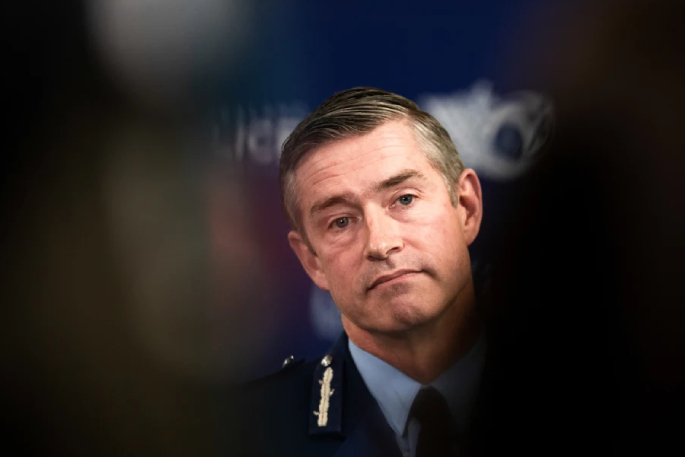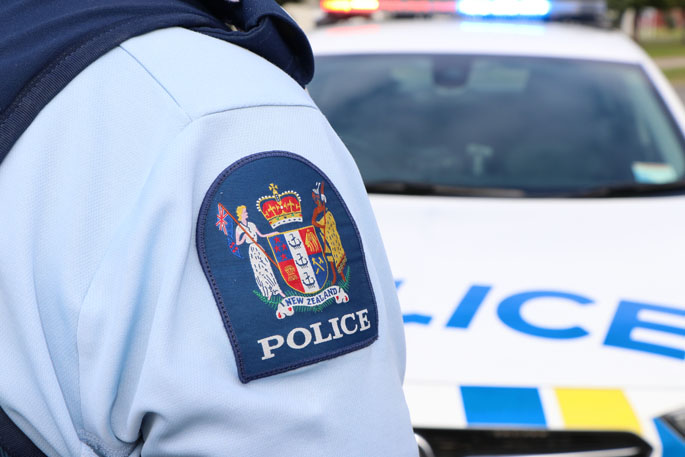Health New Zealand | Te Whatu Ora and the Ministry of Health - Manatū Hauora are working with Police to change some of the ways agencies respond to mental health.
The change will see an increased health-led response, supporting Police to focus on core Policing.
As health agencies, our interest is in improving access to mental health services for people that need them in a timely way, while ensuring the health and safety needs of our workforce, patients and their whānau continue to be met.
This is all about getting the balance right.
Police will continue to respond – just as they always have – to mental health events with immediate risks to life and safety, keeping members of the public and our workforce safe.
There will be other times, however, when a health-led response is more desirable. For example, the potential stigma for a distressed person of waiting in ED for a mental health assessment can be exacerbated if they are accompanied by Police.
The change programme will introduce higher thresholds for Police responding to some mental health events from November, with further changes rolled out in three stages over the following 12 months.
Ensuring the transition is managed safely for people who need mental health services, our workforce and the public is a top priority for Health NZ, the Ministry and Police.
All three agencies are committed to working together to ensure any potential issues are identified and resolved before final decisions to activate each phase are made.
Health NZ is working with clinical experts, ED representatives, health and safety specialists, security staff and others to put a robust operational plan in place.
One of the factors we will need to consider as part of our transition planning is our on-going mental health workforce shortages.
The one-year change programme announced today is part of a wider five-year transition plan underway to move to a multi-agency response to 111 calls, with less reliance on a Police-led model.
The plan includes a range of initiatives, such as improving the responsiveness of telehealth services, trialling peer support in EDs, and ongoing safety improvements in EDs and hospital spaces more generally.
The one-year change programme announced today is aligned to this longer-term plan.
Further information on the health-led aspects of this change plan will be made available over coming months.
Police announce phased plan to reduce service to mental health demand
Police will introduce new, higher thresholds for attending mental health callouts, with changes to be phased in from November 2024 and completed by September 2025.
 Police Commissioner Andrew Coster. File Photo.
Police Commissioner Andrew Coster. File Photo.
Police Commissioner Andrew Coster has today announced a programme of change to begin reducing police resourcing of mental health calls for service, to relieve demand pressures.
Police have formally notified Health New Zealand authorities and stakeholders that the higher thresholds will ensure Police prioritise events where there is an immediate risk to life and safety.
Events that fall short of that threshold will not be attended by Police, but rather directed to more appropriate services.
Police are committed to supporting Health New Zealand, so the transition occurs safely and without unintended consequences.
We are aligned in wanting a system that supports everyone’s mental wellbeing, so people are supported to stay well, and have access to help that works for them, from the right person at the right time.
Like Health New Zealand, we care about our health professionals and the important mahi they do for our communities.
It’s important to us they feel safe, which is why we have committed to slowly phasing the changes in over time – starting with reducing the amount of time we spend in emergency departments.
“It is important to be clear that Police will still attend any jobs where there is an immediate risk to life or safety – that has not changed," Commissioner Coster says.
“It is well documented that mental health demand is increasing and our challenges in meeting this demand are ongoing and impacting our ability to service other needs in our community.
“Mental health demand accounted for 11 percent of calls to our Emergency Communications Centre in the year to May 2024.
“Police receives one mental health-related call every seven minutes, taking up about half a million hours of Police frontline time per year.
"Of those events, only five percent had a criminal element and 11% of calls are coded P1 and are given a priority response.
“It has been clear to me for some time, that this is simply not sustainable and prevents us from keeping other areas of the community safe.
"It impacts on our ability to deliver core policing services.
“As well as impacting our frontline, it also creates bottlenecks at the Emergency Communication Centres – meaning they can’t always respond to every call in a timely manner.
“To help alleviate the high level of demand on Police, we will be phasing a reduction of Police resources to mental health events that do not have a crime or high level of risk attached to them.
“The programme of change will be rolled out over four phases beginning in November this year with Police introducing a higher threshold of risk before committing staff to responding to requests for mental health transportation, or attendance at mental health facilities.
“In January next year, Police staff will conduct handovers with Health staff, and depart after a maximum one hour unless there is a risk to life or safety.
"This will eventually reduce to 15 minutes later in the year.
“Also starting from next year, we are tightening rules around our custody suites, which we do not believe are appropriate for conducting mental health assessments.
“Another area that has added to our demand is the lower threshold for searching for people reported missing from mental health facilities.
"We will need to work with Health agencies to better manage this with higher thresholds.
“We anticipate there will be other areas where we can better manage our response to mental health calls, and we will be assessing those areas as we progress this work.
“We want those experiencing mental health distress to get the right help at the right time from the right people.
They do not always want or need a Police car turning up or for Police Officers to sit with them for hours in emergency departments, further adding to the stigma of what is already a very difficult time.
“Immediately, there will be no changes, and we will continue to respond to mental health callouts as we always have.
The changes will take a phased approach as we want to support our health partners by giving them time to adapt.”
Phase 1: 1 November
• Voluntary handovers at emergency departments – Police will streamline the handover process for people wanting to undertake a mental health assessment voluntarily.
Once handed over to Health staff, police will depart immediately.
• Mental Health transportation requests – will be subject to a higher threshold before Police agree to become involved.
• Police attendance at mental health facilities – will also be subject to a higher threshold.
Phase 2: January to March 2025
• 60 minute ED handovers – Police who have transported a person detained under the Mental Health Act for an assessment will remain for a maximum one hour before departing unless they consider there is an immediate risk to life or safety.
• Mental Health custody rules tightened – Police do not consider custody suites to be an appropriate place for mental health assessments to be conducted.
Custody rules will ensure people in distress are not being assessed unnecessarily in Police custody.
Phase 3: April to June 2025
• Requests for assistance from health practitioners – Our new threshold will ensure Police are not directed unnecessarily to mental health work by practitioners.
• Missing Mental Health patients – Many of the missing person reports generated from mental health facilities and wards generate a more immediate response than other missing person reports.
Police will work with agencies to establish a more appropriate model for managing these situations, including Police not being the first to begin searching for missing persons.
Phase 4: July to September 2025
• 15 minute ED handovers – Where police have detained a person under the Mental Health Act and transported them to an ED for mental health assessment, a handover process between Police and Health staff will occur, and Police staff will depart after 15 minutes, unless they consider there is an immediate threat to life or safety.
• Welfare checks from public and agencies – Police have been over responding to welfare checks where there is no risk of criminality or to life or safety.
"We are aiming to reduce demand on frontline staff but are conscious the issues are complex so we will continue to talk to partner agencies before making any final decisions."



0 comments
Leave a Comment
You must be logged in to make a comment.